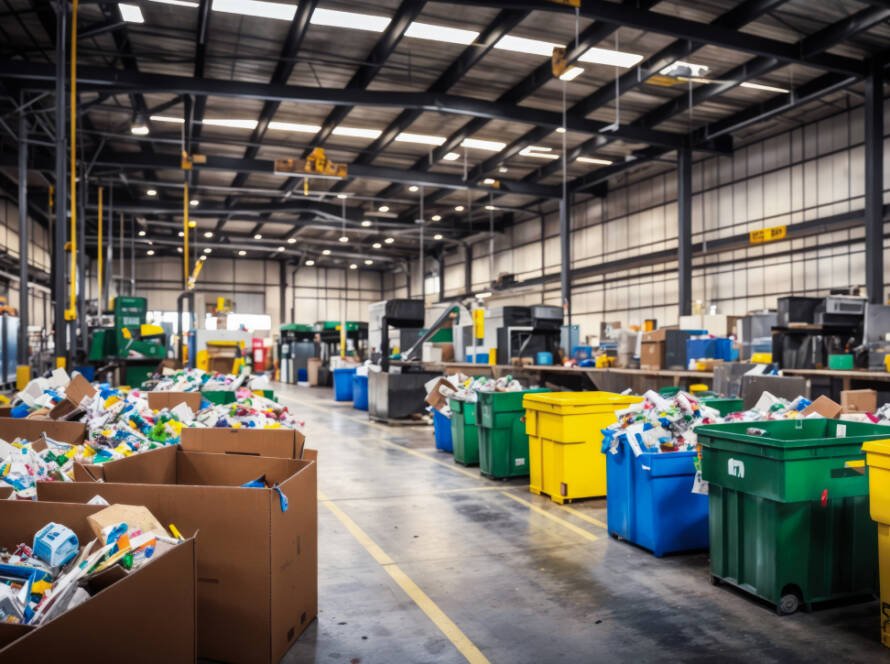QThe arena of metal recycling is undergoing a significant transformation, driven by the urgent need for sustainability and resource conservation. As global demand for metals increases, recycling these materials presents an environmental necessity and a substantial economic opportunity. This blog delves into how innovative metal recycling practices create a more sustainable and efficient industry.
- Rising global metal demand heightens the need for sustainable recycling practices.
- Metal recycling plays a pivotal role in resource conservation and waste reduction.
- Innovations in the field are enhancing the efficiency and effectiveness of recycling.
- Sustainable recycling contributes to reducing carbon emissions and energy consumption.
- The industry’s evolution reflects a shift towards a more circular economy.
- In India, metal recycling is gaining momentum as a critical component of sustainable development.
- The focus is not just on recycling but also on the quality and purity of the recycled metals.
The State of Metal Recycling in India
India’s metal recycling industry is at a crucial juncture, with vast potential for growth and improvement. As one of the fastest-growing economies, the country generates substantial metal waste, necessitating efficient and sustainable recycling practices.
- India’s rapid industrialization has led to increased metal waste generation.
- Currently, a significant portion of this waste needs to be optimally recycled.
- The metal recycling industry in India is predominantly informal and unorganized.
- There is a pressing need for modernization and adoption of best practices.
- Government policies and initiatives are increasingly supporting the formal recycling sector.
- The adoption of global recycling standards can significantly enhance India’s recycling efficiency.
- Educating the public and industries about the benefits of metal recycling is crucial.
Innovative Recycling Techniques
The metal recycling industry is embracing cutting-edge technologies and innovative techniques to improve recycling rates and the quality of recycled metals. These advancements are crucial in making recycling more efficient and environmentally friendly.
- Advanced sorting technologies help in segregating different types of metals.
- Automated processes increase recycling efficiency and reduce labour costs.
- High-tech shredding and melting techniques ensure the purity of recycled metals.
- Energy-efficient recycling methods are being adopted to minimize environmental impact.
- Innovations in metallurgy enhance the quality of recycled metals, making them suitable for various applications.
- Recycling facilities are increasingly using data analytics for process optimization.
- India’s metal recycling sector is gradually incorporating these global innovations.
According to a report by the Material Recycling Association of India, the country’s metal recycling industry has the potential to grow by 11.4% annually, highlighting the immense opportunity for sustainable development in this sector.
Sustainable Benefits of Metal Recycling
The environmental benefits of metal recycling are immense, making it a crucial component of sustainable development. By recycling metals, we can significantly reduce the environmental impact of metal extraction and processing.
- Recycling metals reduces the need for mining and conserves natural resources.
- It significantly lowers greenhouse gas emissions compared to new metal production.
- Water and energy consumption are also drastically reduced in the recycling process.
- Metal recycling helps in reducing landfill waste and environmental pollution.
- It supports the circular economy model, promoting a sustainable lifestyle.
- In India, sustainable metal recycling can significantly contribute to environmental conservation.
- Educating industries and consumers about these benefits is critical to promoting recycling.

The Role of Policy and Regulation
Effective policy and regulation play a vital role in shaping the future of the metal recycling industry. Governments and regulatory bodies increasingly recognise the need for stringent standards and supportive policies to promote sustainable practices.
- Regulations ensure compliance with environmental standards in the recycling process.
- Policies that incentivize recycling can accelerate industry growth.
- Standardizing recycling processes ensures the consistency and quality of recycled metals.
- Collaboration between government, industry, and NGOs is crucial for effective policy implementation.
- India is in the process of strengthening its regulatory framework for metal recycling.
- International cooperation and knowledge sharing can aid in policy development.
- Stricter enforcement of regulations is needed to combat informal and unsafe recycling practices.
Endeavor Recyclers: Leading Sustainable Metal Recycling Efforts
Endeavor Recyclers stands as a leader in sustainable metal recycling, embodying the principles of innovation, efficiency, and environmental stewardship. Our commitment to sustainable practices is evident in every facet of our operations, from adopting advanced recycling technologies to focusing on quality and environmental impact.
- Endeavor Recyclers employs state-of-the-art technologies for efficient metal recycling.
- Our processes adhere to the highest environmental and quality standards.
- We are dedicated to promoting sustainable practices in the metal recycling industry.
- Collaborative efforts with various stakeholders enhance the impact of our initiatives.
- Our commitment extends to raising awareness about the importance of recycling.
- Endeavor Recyclers is pivotal in India’s journey towards sustainable metal recycling.
References :
- Material Recycling Association of India Report on the Potential Growth of Metal Recycling Industry.


